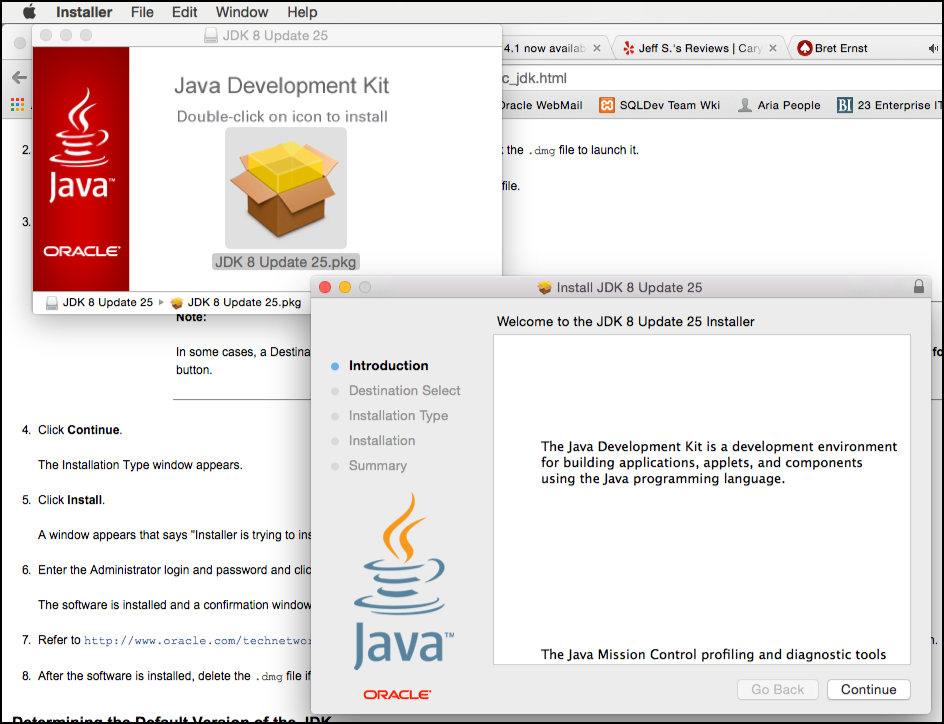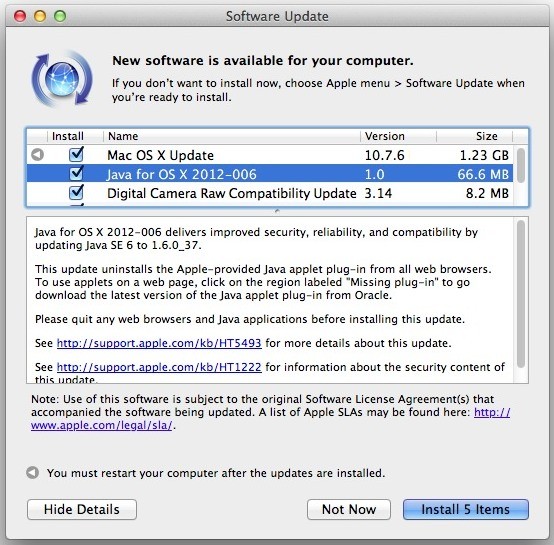Oct 24, 2019 Mac mini introduced in early 2009 or later iMac introduced in mid 2007 or later Mac Pro introduced in early 2008 or later Xserve models introduced in early 2009. To find your Mac model, memory, storage space, and macOS version, choose About This Mac from the Apple menu. If your Mac isn't compatible with OS X Yosemite, the installer will let. Launch the Java Control Panel on Mac (10.7.3 and above) Click on Apple icon on upper left of screen. Go to System Preferences; Click on the Java icon to access the Java Control Panel. Java Control Panel. The Control Panel allows you to find information about Java version and configure various settings to help you efficiently run Java on your Mac. Uninstall Oracle Java using the Terminal. Note: To uninstall Java, you must have Administrator privileges and execute the remove command either as root or by using the sudo tool. Remove one directory and one file (a symlink), as follows: Click on the Finder icon located in your dock; Click on Go in the Finder menu; Click on Utilities; Double-click on the Terminal icon.
- Java Plug In For Mac Yosemite Download
- Internet Plug In For Mac
- Java Plug In For Mac Yosemite National Park
- Java Plug In For Mac Yosemite 10
Where is the Java Control Panel on my Mac?
This article applies to:- Platform(s): Mac OS X, macOS
- Java version(s): 7.0, 8.0
Find the Java Control Panel on Mac
Launch the Java Control Panel on Mac (10.7.3 and above)
- Click on Apple icon on upper left of screen.
- Go to System Preferences
- Click on the Java icon to access the Java Control Panel.
Java Control Panel
The Control Panel allows you to find information about Java version and configure various settings to help you efficiently run Java on your Mac.
General

- About Java: View information about the Java version
- Network Settings: By default, Java will use the network settings in your web browser. You can set preferences including proxy servers in this setting.
- Temporary Internet Files: Files used in Java applications are stored in a special folder, called a cache, for quick execution later. You can view and configure cache files, settings, including file location, as well as delete cache from this setting.
Update
Allows you to check for and get the latest available Java version and configure whether you want to automatically update. For more information visit How do I update Java for my Mac?
Java
Java Runtime Environment Settings: View and manage Java Runtime versions and setting for Java applications and applets.
Security
You can set the security level from within the Java Control Panel so that you are notified before any untrusted Java applications will be run, or the application will automatically be blocked. For detailed information visit Security levels in Java Control Panel.
Advanced
Java Plug In For Mac Yosemite Download

Internet Plug In For Mac
- Debugging: Allows you to enable tracing, logging and show applet lifecyle exceptions.
- Java console: Allows you to show hide or disable the Java console
- Shortcut Creation: Allows you to allow apps or the user to create or disable shortcut creation.
- JNLP File/MIME Associations: Allows, disables or prompts user for file associations.
- Application Installation: You can enable or disable app installations in this setting.
- Security: Allows you to configure various settings related to security such as grant permissions to content, alert users about site certificates, enable trusted publishers and blacklist revocation checks, use specific SSL and TLS versions, as well as configure mixed code security verification settings.
- Miscellaneous: You can configure whether to place a Java icon in the system tray under this setting.
You might also be interested in:
Java Plug In For Mac Yosemite National Park
- Mac OS X information for installing and using Java
- How do I install Java for my Mac?
- How do I uninstall Java on my Mac?
- How do I Update Java for my Mac?
- How do I clear Java cache on my Mac?